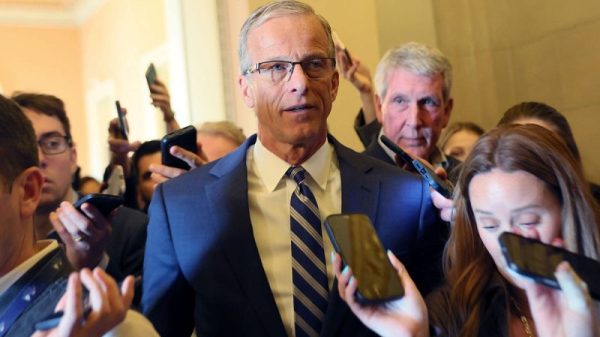In recent years, the issue of gun violence has become a prominent concern in the United States. Advocates for gun control have called for stricter regulations to prevent tragedies such as school shootings, which have tragically claimed the lives of many innocent individuals, including children. The debate over gun control often becomes intertwined with political discussions and partisan divides. However, the intersection of gun violence with public health concerns, such as the resurgence of preventable diseases like measles, raises urgent questions about the impact of policy decisions on public safety and well-being.
The link between school shootings and the prevalence of measles may seem disparate at first glance, but a closer examination reveals a common thread – the role of government policies in safeguarding public health. School shootings have become a grim reality in American society, prompting calls for action to address the root causes of gun violence and enhance safety measures in educational institutions. The availability of firearms, particularly semi-automatic weapons, has enabled individuals to carry out mass shootings with devastating consequences. Advocates for stricter gun control argue that limiting access to firearms, especially for individuals with a history of violence or mental health issues, could help reduce the frequency and severity of such incidents.
Similarly, the resurgence of measles outbreaks in the United States has brought attention to the importance of vaccination policies and public health infrastructure. Measles, a highly contagious virus that was declared eliminated in the U.S. in 2000, has made a comeback in recent years due to a decline in vaccination rates and vaccine hesitancy among certain communities. The spread of misinformation about vaccines, fueled by anti-vaccination movements, has contributed to a decline in herd immunity and facilitated the reemergence of preventable diseases. Public health officials emphasize the critical role of vaccinations in preventing outbreaks and protecting vulnerable populations, particularly children who are at greater risk of complications from infectious diseases.
The connection between school shootings and measles outbreaks underscores the broader implications of policy decisions on public safety and health. The debate over gun control and vaccination requirements reflects deeper societal values and priorities related to individual rights, community well-being, and government intervention. Advocates for gun control argue that stricter regulations are necessary to prevent senseless acts of violence and protect the most vulnerable members of society, including children. Likewise, public health advocates stress the importance of vaccination policies in safeguarding population health and preventing the spread of contagious diseases.
In considering the link between school shootings and measles outbreaks, it becomes clear that policy choices have far-reaching consequences for public safety and well-being. Addressing the root causes of gun violence and preventable diseases requires a multifaceted approach that includes legislative action, public awareness campaigns, and community engagement. By recognizing the interconnected nature of these issues, policymakers can work towards creating a safer and healthier society for all individuals. Ultimately, a concerted effort to address the underlying factors contributing to school shootings and measles outbreaks is essential to promoting the common good and fostering a culture of empathy, responsibility, and resilience in the face of shared challenges.






















